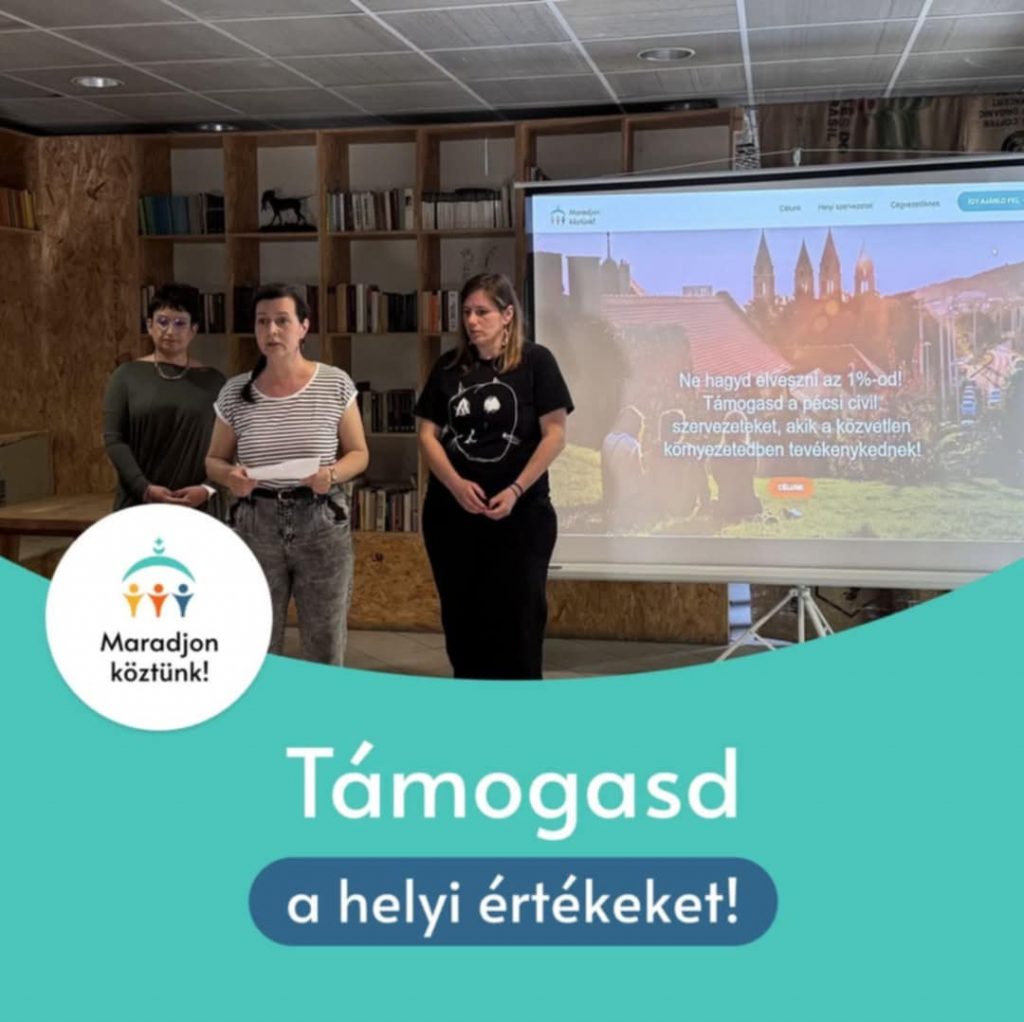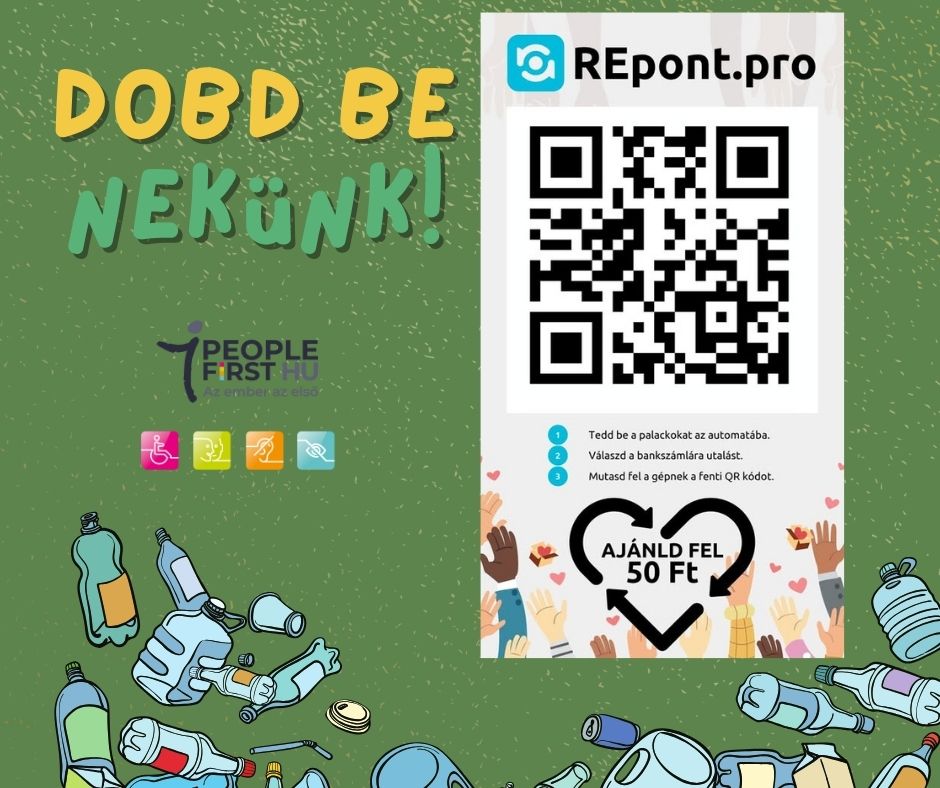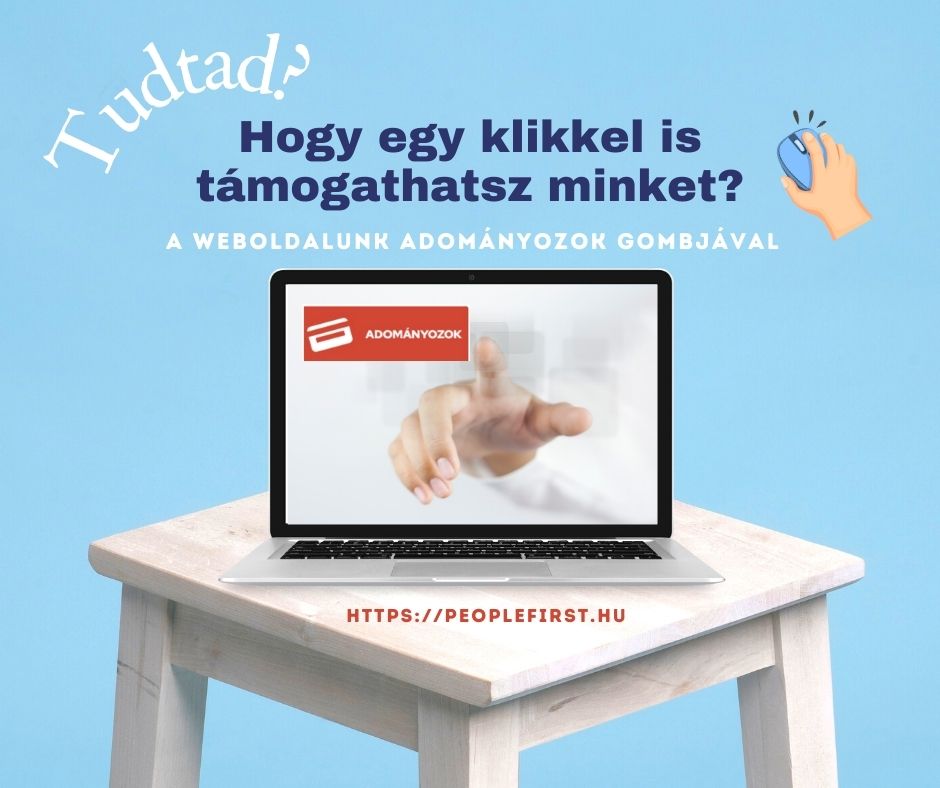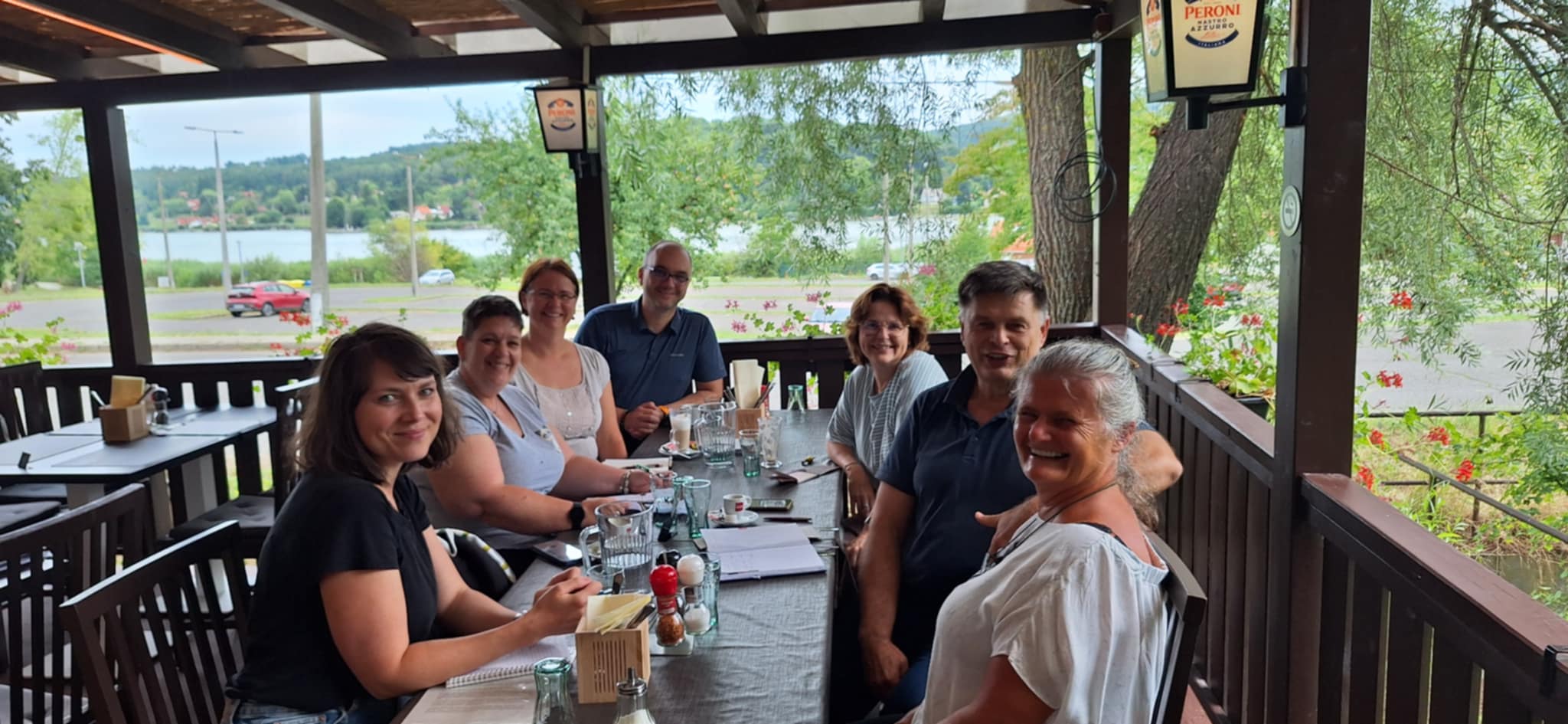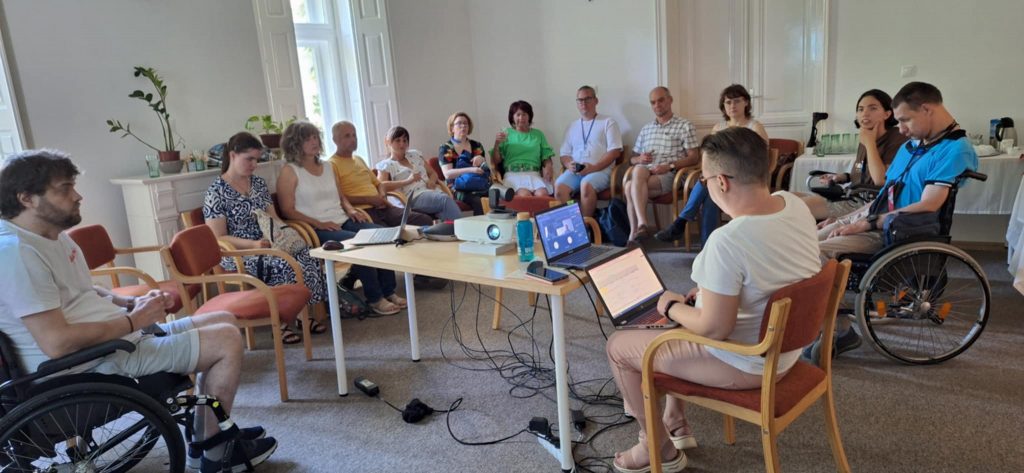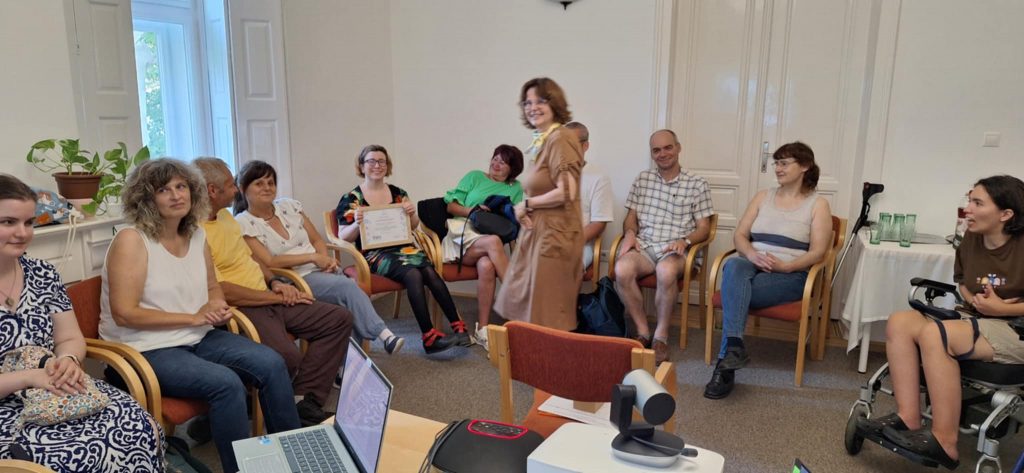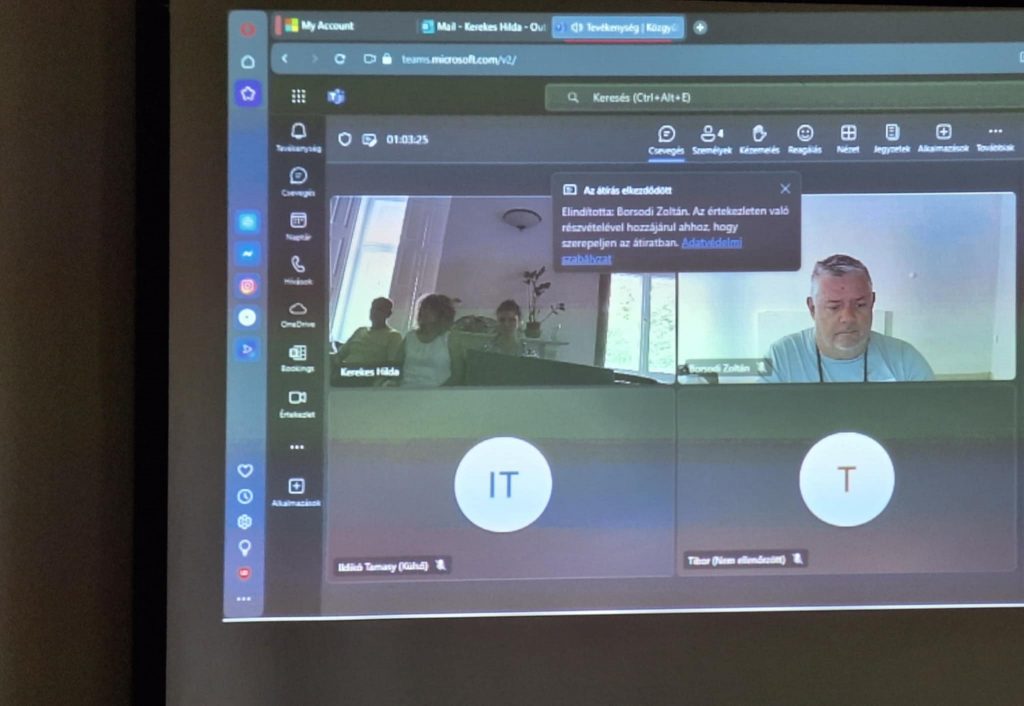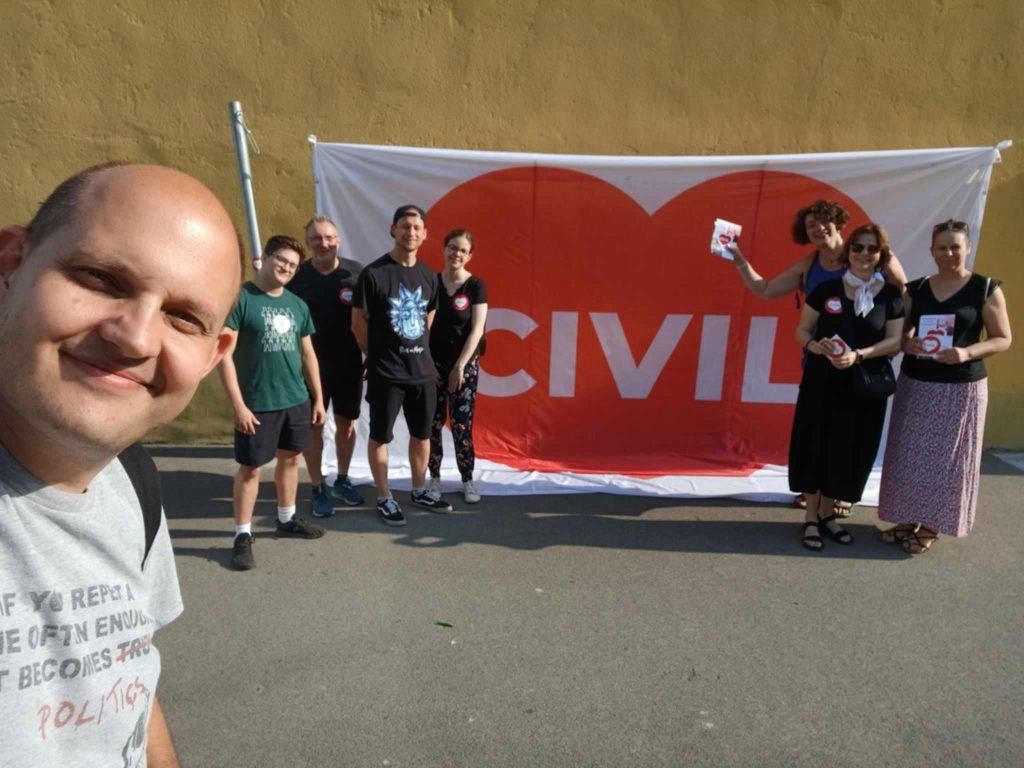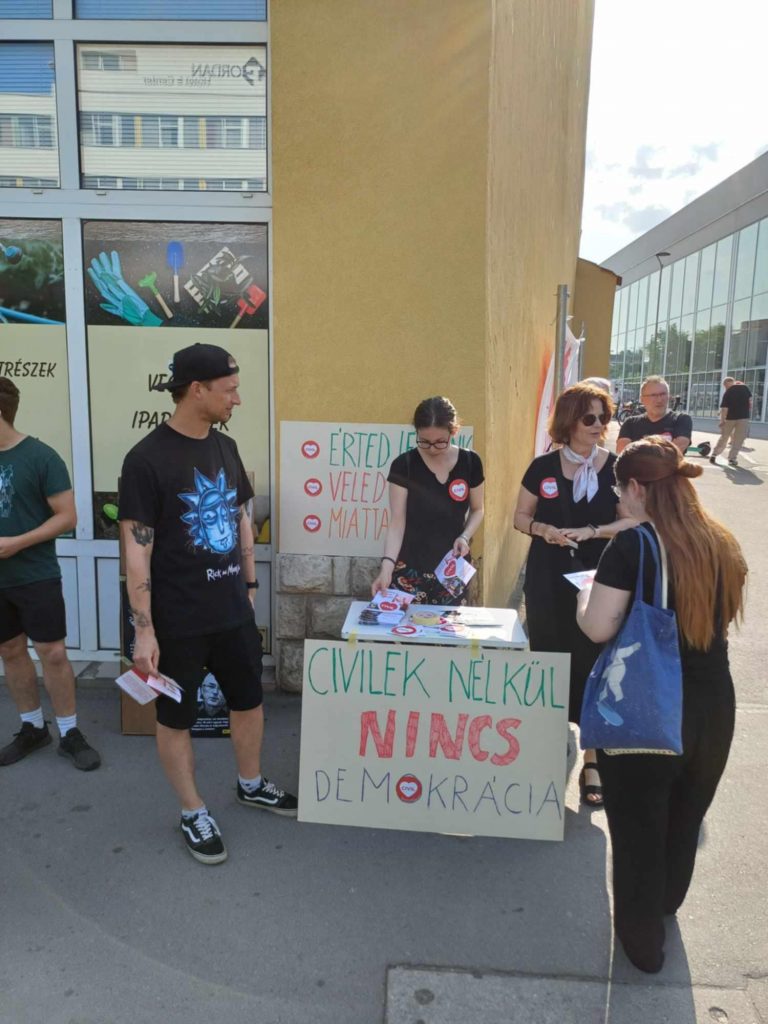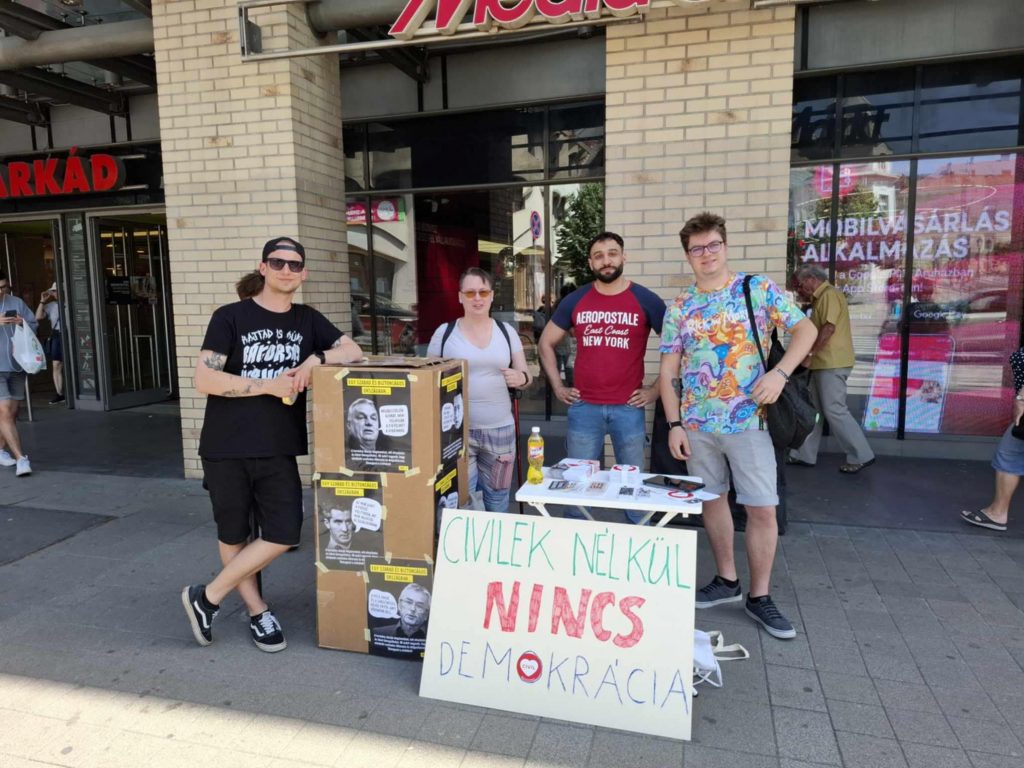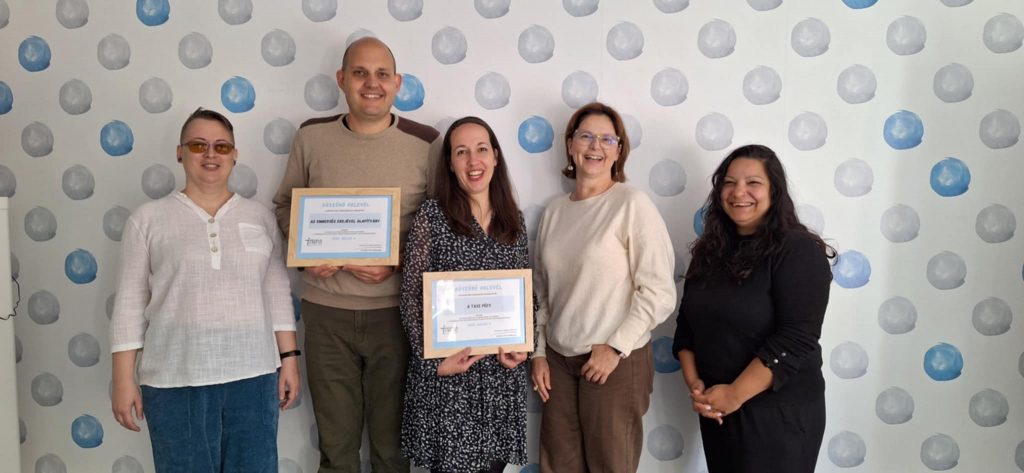Being an NGO in Pécs is good!
Another great collaboration has been launched in our city, a truly niche initiative of which we are delighted to be a part. Indeed, you can be part of it as a local NGO or local company. Read on to learn how:
Generated and coordinated by the Emberség Erejével Foundation, active companies and NGOs of Pécs who want to do something for the local community joined forces to work together for local values and the local community.
Our first joint project is the development of the ” Leave it between us!” campaign, which aims to encourage the people of Pécs to donate 1% of their personal income tax (SZJA) to support local organisations, thus enriching the local community.
On the last day of April, we held a press conference to present the ” Leave it between us!” campaign and the organising Civic and Business community. So far, the Civic and Civic Team is made up of 12 organisations – including People First – but it is open, so we are looking for more civic and business organisations who want to get involved.
The team has created a website where the activities of the NGOs applying to be presented can be accessed. In fact, the data of all (575) Pécs-based NGOs that received a 1% SZJA donation in 2024. From here, the people of Pécs can choose to which of them to donate 1% of their personal income tax by 20 May.
The website also includes a brief description of the companies and NGOs participating in the campaign, as well as campaign leaflets and information materials for local businesses who would like to join.
But if anyone is lost on how to make a donation, we also provide help and a direct link.
As the biggest problem is that many people in Hungary don’t bother to donate their 1%, the main goal is to encourage them to get active. This 1% is deducted from everyone’s taxes, so if someone does not donate it to an NGO, it is lost to the public. Some people think that their little money is worthless, but that is far from the case! For NGOs, every little amount of money is a great help to their work!
And why do we want local NGOs to be supported by donors? Because we think it is important to support local values and to strengthen the work of local NGOs, because they work for the people of Pécs.
Local companies joining the current campaign commit to inform their employees about the importance of the 1% donation and motivate them to donate by the 20 May deadline, preferably to a Pécs NGO.
JOIN us and become part of this exemplary campaign either this year or in the future!
If you want to be listed as a CIVILIAN on the maradjonkoztunk.hu website, please fill in this form: https://forms.gle/zFeFZ1TsS2DamFJj9
If you would like to join the campaign as a COMPANY, or the Companies & Civilians community, please send an email to info@emberseg.hu
Support local values, and 1% of your PAYE will stay with us!
Current members of the collaboration (who hope to see their community grow):
Companies:
Games for Business
Innoteq Kft.
Pannon Cégcsoport
Webstar
YCO
NGOs:
Emberség Erejével Alapítvány
Élménylelő Ifjúsági Egyesület
Közelítő Egyesület – Pécsi Kosár
People First Közhasznú Egyesület – Pécs
Pécsbányai Kulturális Egyesület
Pécsi Közösségi Alapítvány
Zöld-Híd Alapítvány
